Eighty percent of success is showing up, according to Woody Allen, but Harlequins had shown up and on the day they weren’t enjoying much success. “We were getting hammered by Bristol,” recalls their former hooker Scott Baldwin.
“It was a big game, a Premiership semi-final back in 2021, but Bristol had scored 28 points in as many minutes and we were under the posts after another try. I remember saying: ‘Boys, if we don’t pull our finger out here this is going to be 50 points.’
“We went in at half-time 28-5 down and Danny Care was smiling. I said: ‘What are you smiling at?’ He said: ‘Mate, think about how many points we can score in the second half if they can run in that many in the first half. Think how tired they are and what we can do over the rest of the game.’
“We went on to win 43-36 after extra time.
“Mindset is a powerful thing.”
Baldwin is now a coach and his job involves making others believe in themselves. The best ones in his profession extend their brief to developing those under them as people as well as rugby players. During his time with Swansea RFC, for instance, the former Australia coach John Connolly tried to build Gavin Henson’s off-pitch confidence by putting him to work in the club’s reception area, where he had to deal with a constant flow of visitors. Maybe in time, a shy guy at Bridgend Ravens will find himself deployed front of house at Baldwin’s behest.
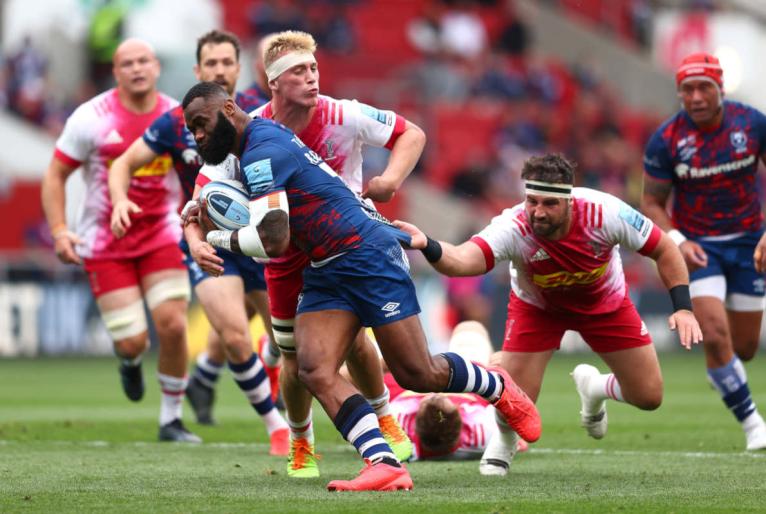
But first things first. The chap on the other end of the phone is still setting in place his coaching fundamentals. He was in charge of Newcastle Falcons’ defence last season and this term he has taken on the Bridgend head coach role. He is still very much learning his trade, but he has been helped by working with some highly respected coaches over the years, though, from Sean Holley and Scott Johnson to Warren Gatland and Shaun Edwards, with Nick Evans, Steve Tandy, Jonathan Humphreys, Adam Jones and Toby Booth among others he has encountered.
Styles differed – of course they did, especially in the case of Edwards, who famously started his tenure as Wales defence boss with a my-way-or-the-highway address to a roomful of players whom previous regimes hadn’t found the easiest to coach, with the former rugby league man telling those gathered in front of him: “We’re a blitzing team. And if you don’t like it, you can fuck off.” No-one in the room demurred.
What will be Baldwin’s way of doing things now he’s the man in the tracksuit? “I want to be a positive coach,” he says. “I don’t want to be one who complains even before a season starts, or one who says: ‘We’re playing so-and-so this week and they have this amount of budget or whatever’. When a coach talks like that, what do you think your players are hearing, even if you tell them something different behind closed doors?
At Bridgend, Baldwin has assembled a trio of former internationals as his assistants in Bradley Davies, Matthew Jones and Matthew Morgan. No-one is expecting instant success for a side whose final three away games last term saw them ship 190 points.
“I used to quite enjoy the way Gatland did it during his first stint as Wales coach. He’d come out in the press every week and state that the expectation was to win: ‘We’re going there to win, we’re doing this to win.’
“What a coach says publicly definitely influences players.”
At Bridgend, Baldwin has assembled a trio of former internationals as his assistants in Bradley Davies, Matthew Jones and Matthew Morgan. No-one is expecting instant success for a side whose final three away games last term saw them ship 190 points, with Newport rattling up 89 of those during a torrid April afternoon for the men from the Brewery Field, but Bridgend will look to play an entertaining brand of rugby under Baldwin with players encouraged to think for themselves.
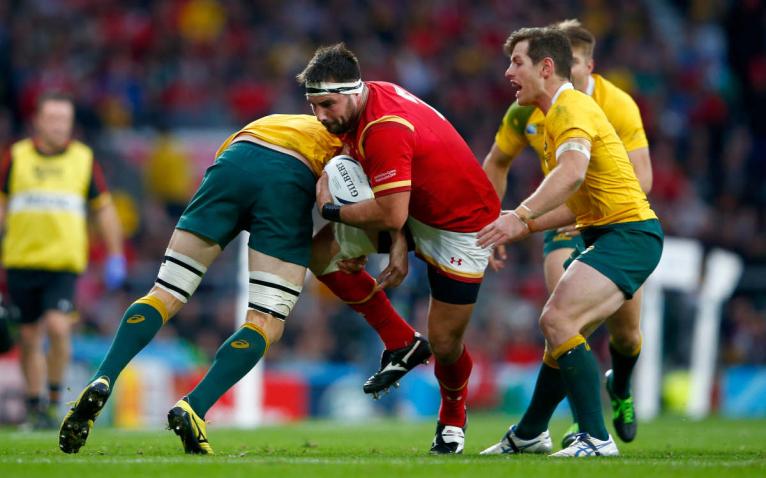
“We went down in the first couple of games, but there have been signs we are trekking in the right direction,” says Baldwin. “We picked up a bonus point against Newport, for instance, five months after leaking 90-odd points over there, and yet the boys still felt they would have got more out of the game.
“Players are buying into what we are telling them.
“Have we started with the results we wanted? No. Have I seen three or four players who I feel have the potential to play professional rugby? Hundred percent, I have.
“Kyle Harris in the back row and Ryan Wilkins in the centre are among those who’ve stood out. We’ve already had unofficial enquiries from English clubs about Ryan. He’s quick and a brilliant defender. I’ve given him a licence to be decisive and make reads, and against Newport he hit one of their players so hard he dropped the ball and one of our wingers picked it up and ran the length of the field. In the next set he came up with a really good read, forced a turnover and we scored off it. So he’s really bought into what we are trying to do.
My thinking is as a coach you are almost a teacher and a salesman. I have to sell my defence policy to players while making them understand why I want things done in a certain way.
“We also have a young winger, Jake Thomas, who’s very fast and looked the part before picking up a bump in the Newport game.
“I’m looking after the defence and I’ve told the players I want them to be bold and try to make those reads. I suppose it’s a bit like former England coach Felix Jones wants his teams to defend. There was feedback in the early weeks that ‘we’re not England, though’. I told them: ‘We’re not playing the All Blacks, though, so don’t worry about it.’
“The key is that players learn and get better.
“My thinking is as a coach you are almost a teacher and a salesman. I have to sell my defence policy to players while making them understand why I want things done in a certain way.
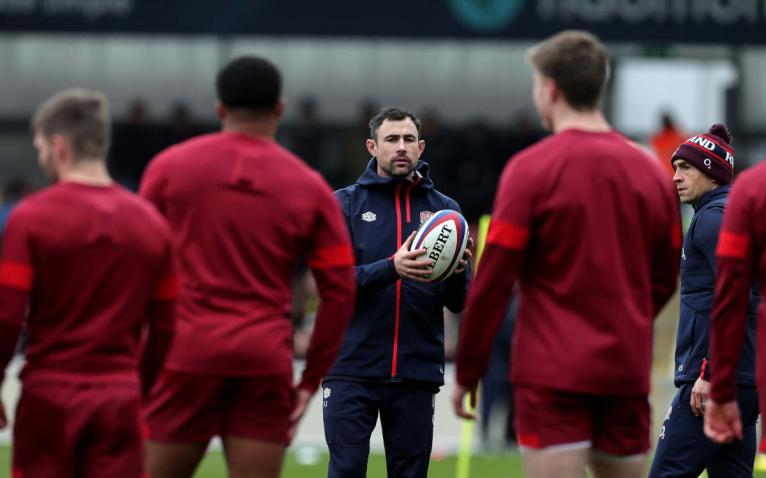
“Hopefully, we can move Bridgend forward. I owe a lot to the club. They were good to me when I was coming through and gave me the chance to do some coaching with them before I went up to Newcastle. They are a special club and I’m fortunate to be coaching them.”
Baldwin has acquired knowledge from all the coaches he has worked with but picks out two for special mention. “Nick Evans is the best attack coach I’ve worked with and Shaun Edwards is the best defence coach,” he says.
“They have simple principles that can be applied anywhere.
“When we were doing an attack drill at Harlequins, Nick would get the defence to show us different pictures and we’d have to make a decision. His analogy was if you watch a horror movie for the first time, your body doesn’t know how to react, so you spike – your heart rate goes up and your adrenalin goes through the roof. But if you watch the same film a couple of weeks in a row, you know what’s coming and you know how to react.
Players respected him [Nick Evans], too, because he was humble. We could come up with six mental offloads and score in the corner, maybe off a starter play he’d thought up, but he’d always say: ‘Boys, that’s all you. All I’ve done is given you a bit of detail.
“Rugby, for Nick, was no different. If someone shoots out of the line your natural instinct as a player is to protect the ball and step back inside, but if you put the ball through the hands, be brave and try to exploit the hole that’s been created, there’s a fair chance you’ll be rewarded.
“He would always talk about frameworks rather than structures, because structures tend to be rigid. Within the framework there are decisions to be made and it’s up to people to make the calls. It’s about trying to develop rugby players rather than robots.
“Players respected him, too, because he was humble. We could come up with six mental offloads and score in the corner, maybe off a starter play he’d thought up, but he’d always say: ‘Boys, that’s all you. All I’ve done is given you a bit of detail. The try was your skillset and your ability in the game.’
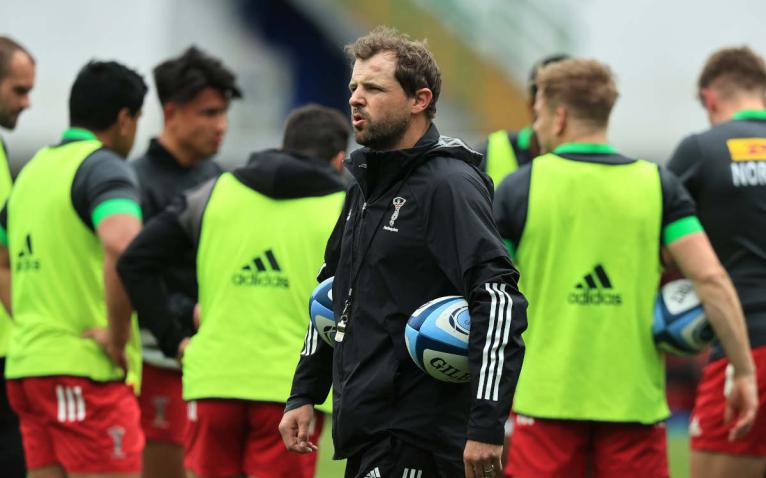
“It was never a case of ‘I told you that would work’. It was either your success or his failure.
“With Shaun, he’d encourage you to make decisions on pictures he’d given you, too.
“Both of them are just very good coaches.”
Baldwin’s receptiveness to new ideas and willingness to learn and apply what he has picked up augurs well for Bridgend, a club synonymous with running rugby whose past players include JPR Williams, Steve Fenwick and Robert Howley. The new head coach sees himself as fortunate, though, to have been given a break in coaching immediately after finishing as a player.
“Newcastle were brilliant for me,” he says. “Their head coach at the time, Alex Codling, got in touch and I learned loads from working in the Premiership,” says Baldwin, who combines his post at Bridgend with a role as business development manager with electronic and mechanical repairs company Kontroltek.
I was listening to Ellis Genge on a podcast the other day, saying how difficult it can be to think about what will come after rugby when you are operating flat-out as a player,
“But my mother fell ill and I felt I needed to spend time with her. To be fair, Steve Diamond [Newcastle’s rugby boss] was very understanding and said I was making the right decision for my family. My mother passed in the summer and it’s really nice to think I was here when she left us.
“My big thing now is to help the club and do well for Kontroltek. I’m trying to generate new business for them and it’s something I’m enjoying. That said, it’s not easy to prepare for the future when you’re playing.
“I was listening to Ellis Genge on a podcast the other day, saying how difficult it can be to think about what will come after rugby when you are operating flat-out as a player, perhaps a Test player, trying to do your best while in the thick of a career that can pay a significant amount of money for you to be the fittest, strongest and best version of yourself every single week.
“You can’t expect anyone to hand you a job on the plate, and I know of boys who have faced uncertain futures when they finished.
“Post-playing support definitely needs to be there.”
Few would disagree with him on that count, or on his positive take on Super Rygbi Cymru, the new addition to Welsh rugby’s structure, involving a 10-club semi-professional tier that has been formed with the aim of better preparing players for the regional game. “From what I’ve seen so far, it’ll be good,” says Baldwin.
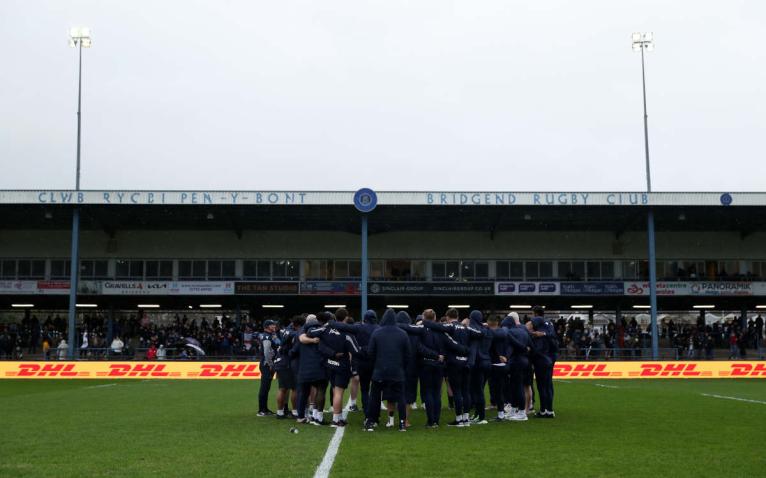
“It’s competitive and a faster league, so there’s plenty to build on. Seeing the ball in play a bit more is the next step, and adding to the intensity, but it’s still early days and there is a desire across the board to improve.
“We all need to be on board, including the regions.
“In New Zealand, players go back to play club rugby if they are not playing Super Rugby. I just hope we buy into that, too, and don’t have boys training on a Thursday and then not having the ability to play on a Saturday, because, ultimately, you don’t get better by training: you get better by playing.”
That is how Baldwin got better as a player during a 14-year on-pitch career as a professional that saw him perform with distinction for the Ospreys, Harlequins and Worcester and win 37 caps for Wales. It is still early days for him as a coach, but the signs are promising. Just maybe, his future could prove as distinguished as his past.


Comments
Join free and tell us what you really think!
Sign up for free